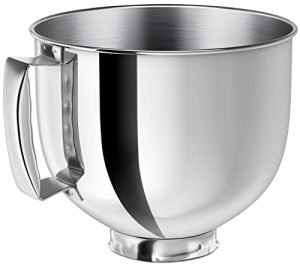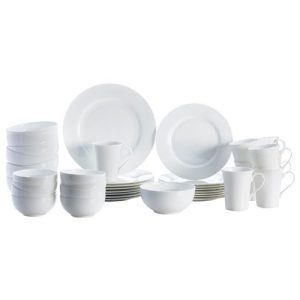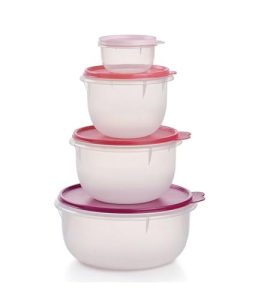Have you ever wondered if your morning cup of coffee could be doing more harm than good? You’re not alone.
As we become more aware of health risks in everyday items, concerns about coffee makers and their potential link to cancer have surfaced. You might be asking yourself, “Is my coffee maker putting my health at risk? ” With conflicting information out there, it’s easy to feel uncertain.
But what if you could uncover the truth, and find peace of mind with every sip? We’ll dive into the facts and myths surrounding coffee makers and cancer, helping you make informed decisions for your health. Keep reading to find out what science says and how you can enjoy your coffee worry-free.
Credit: www.reddit.com
The Origins Of Coffee And Cancer Concerns
The debate over whether coffee makers can cause cancer often starts with questioning the origins of coffee itself. Coffee, the beloved beverage that powers millions of mornings, carries an intriguing history. Concerns about health risks, including cancer, tend to emerge from misunderstandings about its journey from bean to cup.
The History Of Coffee Consumption
Coffee’s story begins in the ancient coffee forests of Ethiopia. Legend has it that a goat herder discovered coffee’s stimulating effects when his goats ate berries from a certain tree. This discovery led to coffee’s spread across the Arabian Peninsula, and eventually the world.
But as coffee consumption grew, so did curiosity about its health implications. Throughout centuries, coffee was sometimes hailed as a cure-all, while at other times it was feared as harmful. These conflicting views have fueled ongoing debates about coffee’s safety.
What Research Tells Us
Scientific studies have investigated coffee’s potential health risks, including cancer concerns. While some research has linked certain compounds in coffee to cancer, such as acrylamide, the evidence is often inconclusive or contradictory.
Many experts argue that the benefits of coffee, like its antioxidants and potential disease-fighting properties, outweigh these risks. It’s essential to look at coffee consumption in a balanced light, understanding both positive and negative aspects.
Personal Experience: A Cup Of Comfort
Think of your morning routine. For many, coffee is more than just a drink; it’s a ritual. It’s the warmth in a cup that awakens your senses and prepares you for the day ahead. Despite the concerns, coffee remains a daily comfort for countless people.
When you savor your coffee, consider the broader picture. Is it the coffee itself, or something more about our habits that might cause harm? Reflecting on your consumption can lead to healthier choices without sacrificing your cherished brew.
Should You Be Concerned?
So, should you worry about cancer from coffee makers? It’s crucial to stay informed and understand the science behind the headlines. Research continues to evolve, and what might seem alarming at first often requires a deeper understanding.
Ask yourself: How does your coffee consumption fit into your overall lifestyle? Are you balancing it with other healthy habits? This perspective can help you enjoy your coffee without undue fear.
Ultimately, while it’s wise to stay informed about potential risks, you can continue to enjoy your coffee. Just be mindful of how it fits into your broader health journey.
Chemicals In Coffee Brewing
Coffee lovers often wonder about the chemicals in their brew. Coffee brewing involves heat and water, which can lead to chemical changes. These changes might raise concerns about health effects.
Acrylamide Formation
Acrylamide forms during the roasting of coffee beans. It is a chemical that develops in high-temperature cooking. Studies suggest it might be linked to cancer in high doses.
The amount of acrylamide in coffee is usually low. It is important to know that most foods have acrylamide. Potatoes and bread also contain it.
Other Chemical Compounds
Brewing coffee can produce other chemical compounds. These include furans, a group of volatile compounds. Furans can evaporate during brewing, reducing their presence in the final cup.
The levels of these chemicals vary with different brewing methods. Espresso and drip coffee might have different levels. Regular consumption of coffee is generally considered safe.
Remember, moderation is key. Enjoy your coffee while being mindful of its components.
Examining Scientific Research
When it comes to health concerns, coffee makers might not be the first thing that springs to mind. However, recent discussions have raised questions about whether these everyday appliances could potentially contribute to cancer risk. To shed light on this topic, let’s delve into scientific research and see what studies have uncovered.
Major Studies And Findings
Scientific research has explored various aspects of coffee makers and their potential health impacts. One major study analyzed the materials used in coffee makers, particularly focusing on plastic components that might contain harmful chemicals like BPA. The study found that prolonged exposure to high heat could cause these chemicals to leach into the coffee.
Additionally, studies have examined the brewing process itself. Some research suggests that certain coffee makers may produce coffee with higher levels of acrylamide, a chemical linked to cancer, due to the high temperatures used. The findings have urged manufacturers to reconsider design and materials to mitigate these risks.
Limitations And Variables
Despite these findings, it’s essential to understand the limitations of the studies conducted. Many studies rely on specific variables, such as the type of coffee maker or the brewing temperature, which might not apply to all devices.
The research often focuses on worst-case scenarios rather than everyday use. This makes it crucial for you to consider how you use your coffee maker and whether your habits align with those highlighted in the studies.
Moreover, variables like coffee bean quality and water source can significantly affect the results. These factors can introduce inconsistencies, meaning that not all coffee makers pose the same level of risk.
Have you ever wondered about the materials in your coffee maker? Could changing a simple habit reduce your exposure to these risks? Understanding these limitations can help you make informed decisions about your daily coffee ritual.

Credit: www.karlyalane.com
Regulations And Safety Standards
Concerns about coffee makers causing cancer often arise. Most machines follow strict safety standards and regulations. These ensure minimal exposure to harmful substances. Regular cleaning and maintenance also play a crucial role in safety.
When considering the safety of your daily cup of coffee, you might wonder if your coffee maker could be a hidden health threat. Understanding the regulations and safety standards that govern these appliances can help ease your concerns. Let’s explore how government guidelines and manufacturers’ measures ensure that your coffee maker is safe to use.Government And Health Guidelines
Governments around the world set strict standards to ensure household appliances, like coffee makers, are safe for use. These regulations focus on limiting exposure to harmful substances such as Bisphenol A (BPA) and ensuring that electrical components are secure. In the United States, the Food and Drug Administration (FDA) plays a key role in monitoring materials that come into contact with food and beverages. Additionally, health organizations often provide guidelines to minimize potential risks. For example, they may recommend using coffee makers that are BPA-free to reduce exposure to this controversial chemical. Are you aware of the materials your coffee maker uses?Manufacturers’ Safety Measures
Manufacturers also take significant steps to ensure their coffee makers meet safety standards. They often use high-quality materials that are free from harmful chemicals. Many brands proudly advertise their products as BPA-free, giving you peace of mind about your coffee’s safety. Regular testing and certifications are part of the manufacturing process. These tests ensure that the coffee maker’s components withstand heat and pressure without releasing toxic substances. When choosing your next coffee maker, do you look for these safety certifications? Your morning brew should be a source of comfort, not concern. By understanding the regulations and safety standards surrounding coffee makers, you can confidently enjoy your coffee without worrying about potential health risks. As a coffee lover myself, knowing my appliance is safe makes my morning ritual all the more enjoyable.Debunking Common Myths
Concerns about coffee makers causing cancer often arise from myths. Misunderstandings and misinformation can spread fear. It’s important to separate fact from fiction. Let’s explore and debunk common myths.
Misinterpretations In Media
Media reports sometimes misinterpret scientific studies. Headlines aim to grab attention. They might exaggerate findings about coffee makers and health risks. Not all studies link coffee makers to cancer.
In many cases, media doesn’t provide full context. This leads to confusion and worry. Understanding what studies actually show is crucial. Studies often focus on chemicals in coffee, not the machines.
Public Perceptions Vs. Reality
Public perceptions can differ from scientific facts. Many believe coffee makers emit harmful substances. This belief can stem from unclear information. It’s key to rely on trusted sources for health advice.
Most coffee makers use safe materials. Regulations ensure that appliances meet safety standards. Coffee itself has antioxidants, which can benefit health. Always check the source of health claims.
Expert Opinions
Expert opinions vary on whether coffee makers can cause cancer. Some studies suggest potential risks from certain materials. Others find no direct link. Understanding these perspectives helps consumers make informed decisions.
When it comes to the debate about coffee makers and their potential link to cancer, expert opinions play a crucial role. You might wonder what health professionals and industry experts have to say. Their insights can help you make informed decisions about your daily coffee habit.Insights From Health Professionals
Health professionals often focus on the materials used in coffee makers. Some express concern over plastic components that may leach chemicals like BPA. Studies indicate that prolonged exposure to such chemicals could pose health risks. However, not all experts see a direct link to cancer. Many doctors emphasize moderation and proper usage of coffee makers. They suggest choosing models with stainless steel or glass components to reduce potential risks. You might be curious about alternatives. Some health experts recommend cold brew methods, which typically avoid plastic entirely. This option offers a refreshing take on your morning brew without the worry.Conclusions From Industry Experts
Industry experts often highlight technological advancements in coffee maker design. Many manufacturers now prioritize BPA-free materials. They aim to address health concerns while enhancing the coffee experience. Have you ever considered the role of certification? Some experts suggest looking for certifications that ensure safety and quality. This can be a practical step in choosing the right coffee maker for your home. Coffee enthusiasts might appreciate industry trends focusing on sustainability and health. The push for safer materials and innovative brewing methods continues to grow. Your coffee ritual can benefit from these positive changes. As you reflect on these expert opinions, what choices will you make for your coffee routine? Balancing enjoyment with health considerations can lead to a more satisfying coffee experience.Practical Tips For Coffee Drinkers
Concerns about coffee makers and cancer arise from materials used in production. Avoid using plastic brewers to reduce risk. Consider stainless steel or glass options for safer brewing.
Enjoying your morning coffee can be a comforting ritual, yet concerns about coffee makers and cancer can cloud your experience. Understanding the potential risks and making informed choices can ease your worries. Here are some practical tips to ensure your coffee habit is both safe and enjoyable.Choosing Safe Coffee Makers
When selecting a coffee maker, pay attention to the materials used. Opt for machines that are BPA-free and made with stainless steel or glass components. This reduces your exposure to harmful chemicals that might leach from plastic. Consider using manual brewing methods like a French press or a glass pour-over. These options minimize contact with potentially unsafe materials, giving you peace of mind as you brew. Research and read reviews before purchasing a coffee maker. User experiences can provide insights into the safety and reliability of different models. Your health is worth the extra effort.Healthy Coffee Consumption
Moderation is key when it comes to coffee consumption. Stick to a reasonable number of cups per day to avoid potential health risks. Too much of anything can be harmful, even your beloved coffee. Pay attention to how your body responds to coffee. If you notice adverse effects like jitteriness or digestive issues, it might be time to cut back or switch to a different brew. Enhance your coffee with healthy add-ins. Instead of sugar, try a sprinkle of cinnamon or a dash of vanilla extract. These natural flavors can satisfy your sweet tooth without the added calories. Are you aware of the water quality you use in your coffee maker? Using filtered water can make a significant difference in taste and health. It’s a simple change that can elevate your coffee experience. By making mindful choices about your coffee maker and consumption habits, you can enjoy your daily brew without worry. Your morning ritual can remain a cherished part of your day, minus the stress.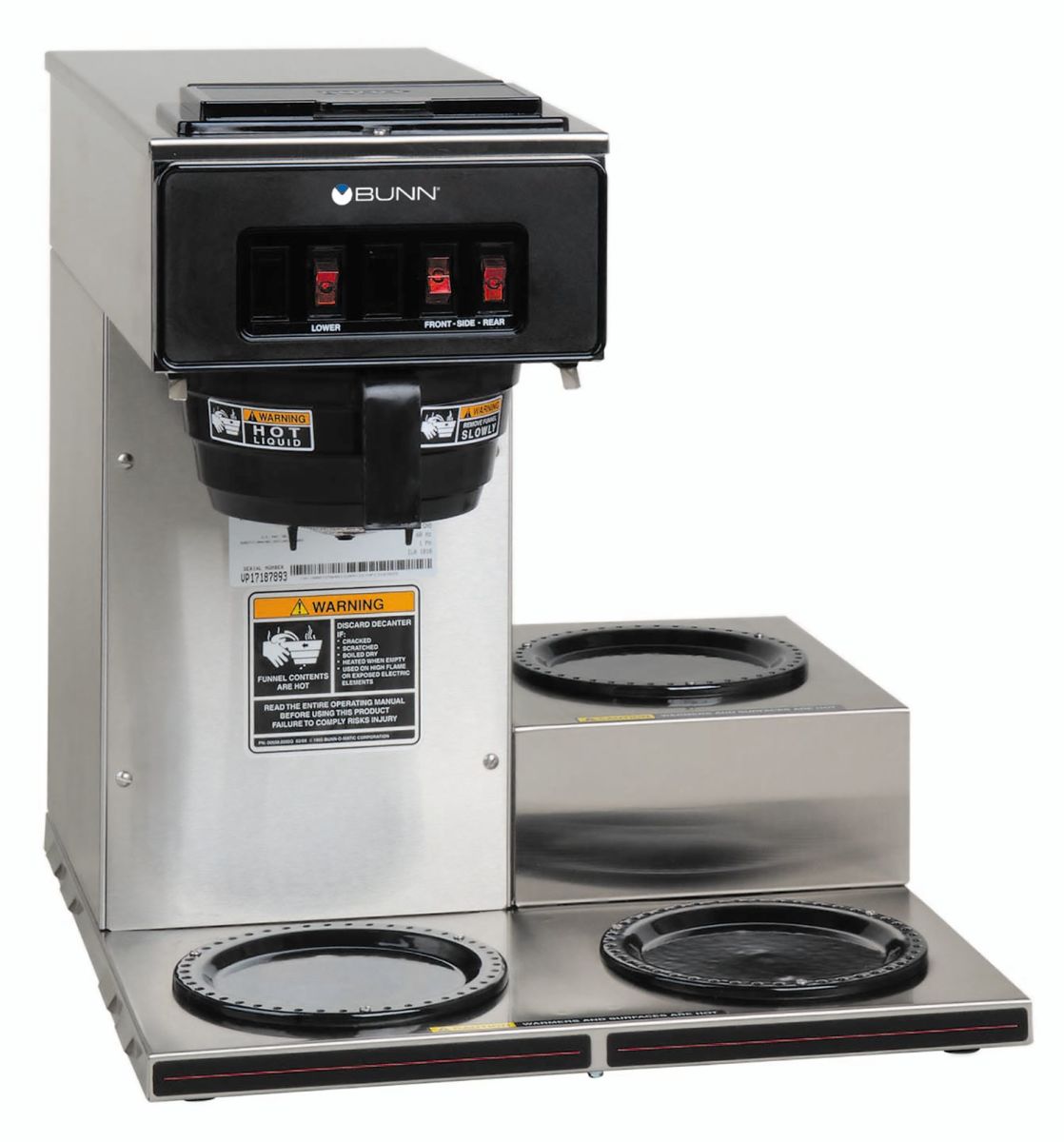
Credit: commercial.bunn.com
Frequently Asked Questions
Why Does My Coffee Maker Have A Cancer Warning?
Your coffee maker may have a cancer warning due to California’s Proposition 65. This law requires warnings for products containing chemicals linked to cancer or reproductive harm, like acrylamide, which can form during coffee brewing. These labels inform consumers of potential risks.
Are Coffee Makers Bad For You?
Coffee makers are generally safe. Ensure regular cleaning to prevent mold or bacteria growth. Use BPA-free models to avoid chemical exposure. Proper maintenance ensures healthy coffee brewing.
Is Coffee From A Coffee Machine Unhealthy?
Coffee from a machine is not inherently unhealthy. Its health impact depends on ingredients and consumption. Limit added sugar and cream. Moderation is key to enjoying coffee’s potential health benefits. Regular cleaning of the machine ensures a better-tasting brew and minimizes health risks.
Are Keurig Coffee Makers Bad For Your Health?
Keurig coffee makers are generally safe for health. Concerns mainly revolve around plastic components and potential BPA exposure. Regular cleaning prevents mold and bacteria buildup. Opt for BPA-free models to minimize risks. Enjoying coffee from a Keurig in moderation is unlikely to pose health issues.
Conclusion
Coffee makers do not directly cause cancer. Research shows they are safe. Regular cleaning is essential to prevent bacteria build-up. Use quality water and filters. Choose BPA-free models to avoid harmful chemicals. Moderation is key when drinking coffee. Excessive caffeine can lead to health issues.
Know what’s in your cup. Be mindful of additives. Natural options are healthier. Coffee offers antioxidants, which may benefit health. Enjoy your coffee maker with confidence. Stay informed and make wise choices. Embrace healthy habits for overall well-being. Your morning brew can be a safe delight.

